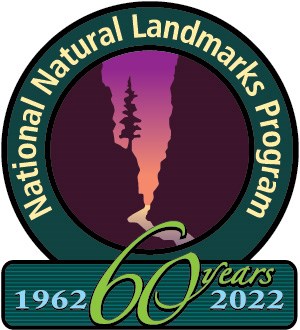
Visit www.nps.gov/nnlandmarks for more information on the National Natural Landmarks Program. See links below to the eight sites with connections to Ice Age Floods National Geologic Trail. 
2022 marked 60 years of recognizing and encouraging the conservation of America’s natural heritage through the National Natural Landmarks (NNL) Program. On May 18, 1962, Interior Secretary Stewart Udall established the program. Six decades later, with the support of landowners, stewards and local communities there are over 600 designated NNL sites. Please join us in celebrating 60 years of the National Natural Landmarks Program! 
|
Last updated: September 29, 2025

